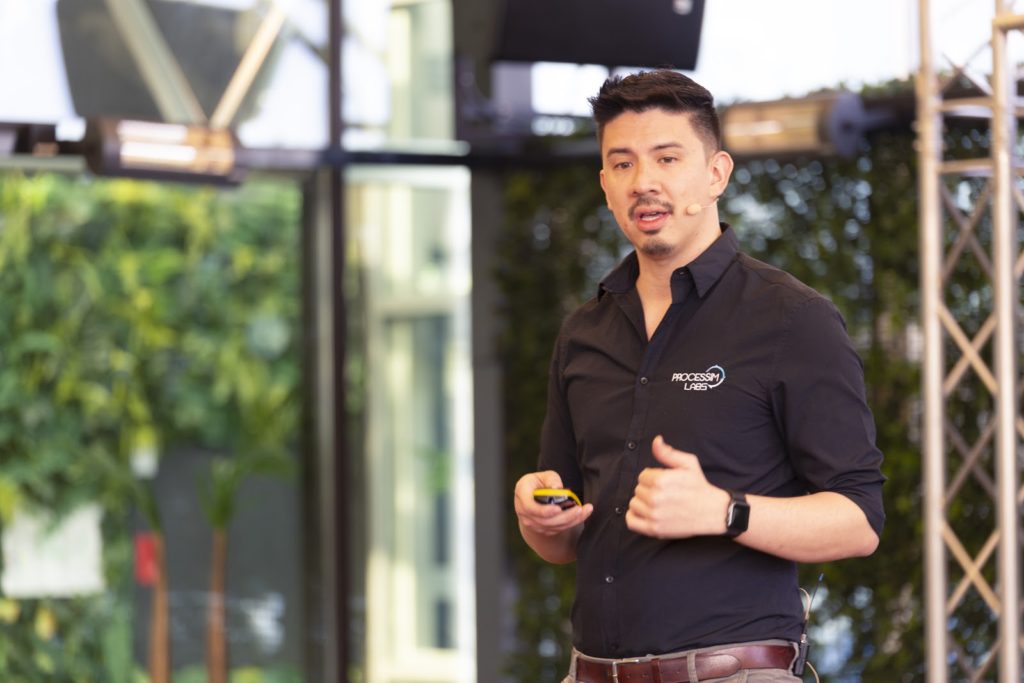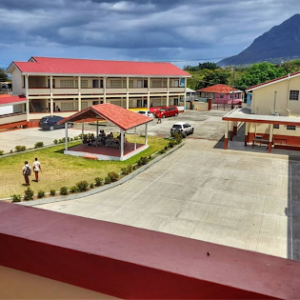Interviewed by Annalisa Crowe
This month we welcome Javier Chan, co-founder of Processim Labs as a Young Leaders of the Americas Initiative fellow for entrepreneurs through the U.S. Department of State. Javier will advise our tech development, UX/UI, and sustainability strategies, including for a project funded by the WES Mariam Assefa Fund to advance equity in digital learning for immigrants and refugees.
Javier is the founder of Processim Labs and brings over 5 years of experience in the field of educational technologies. His company focuses on the development of educational simulation games specifically designed for mobile devices (smartphones and tablets). Their work has been focused mainly on solutions for higher education and corporate training. Javier joined the YLAI fellowship for the opportunity to connect with different companies in the U.S. and leaders in the education and technology fields.
We held a Q&A session with Javier to learn more about his work and experience.
Annalisa: Why did you decide to work in edtech (educational technologies) and why in simulation in particular?
Javier: I strongly believe education is the best tool for social mobility. The co-founders of Processim Labs and I were working on developing mobile apps for third parties, and we saw there was great opportunity to improve learning experiences through simulation games as well as room for improvement in simulation design. Professors know what they want to have students learn in their content areas, and we can help them create experiences to practice applying what they have learned and learn from their mistakes in real time as they develop critical thinking and decision making skills. Some people might have the preconception that simulations are complicated, and they can be, but we work closely with professors to create pre-packaged simulations for their instructional goals through a mobile app students can easily download and play.
Annalisa: What are some examples from your work that demonstrate the benefits of using simulation in learning?
Javier: Our best-selling game does an excellent job, for example, of simulating the uncertain reality of real-life business where there is usually no single, straightforward solution to fixing a struggling company. Students make decisions and experience either success or failure in their efforts. In this process, they acquire a deep understanding of the different management problems and develop a systemic understanding of how companies operate. Simulations are far from just memorization, instead they exemplify real world situations and encompass other potential factors involved, that cannot just be extracted from a book or lecture. Our teaching tools allow for peer teaching and collaboration as students can discuss and debate about what decisions to make next, all of this from the convenience of their smartphones or tablets.
Annalisa: What are some of your company’s goals, and what are ways institutions in the U.S. can help you more meet these goals?

Javier: We want to grow a portfolio of simulations so we have simulations for a multitude of different areas. In the near future, we want to provide educators with a list of simulations from which they can choose the one that works best for their course content. Our main focus is to make simulations easily accessible and usable, to make the use of simulations in the classroom become as normal as possible. We believe that with the help of other organizations we can accomplish this, and will be able to reach more institutions and educators and provide them with our ready-made solutions. And as we continue to grow, we would love to connect with publishers to help build book-specific simulations, so students can have our interactive simulations directly complement their reading.
Annalisa: Are you partnering with other organizations (training programs, education providers)?
Javier: We are currently partnering with some universities in Costa Rica on the development of simulations about supply chain management and crisis management. We also have created simulations around mass migration management for international organizations and the training of banking account executives on investment. We have been featured as a Best EdTech start up at different forums and by TechCrunch as a Top Pick in education during their DISRUPT event. In 2020, the MIT Sloan School of Management’s Operation Management Club hosted their 16th Annual Operations Management Competition, OpsSimCom. Processim Labs was chosen to operate the competition, in which students from universities around the world competed to see who could run the most profitable virtual company. This event helped to connect us with more institutions and professors looking to improve their online classes. We will be working with them again in 2021.
Annalisa: What excites you about collaborating with World Education on its Equity in Learning project with immigrants and refugees and other efforts to advance digital equity for adults in the United States?
Javier: I am really excited for the networking aspect of it all- getting to know and learn from people throughout the organization and the organizations and people with whom they partner. The work that World Education is doing is incredible, in particular with immigrants and refugees. World Education is also connecting me to leaders and internal opportunities that can help me to strengthen my skills in areas, such as fundraising and selling in the education vertical as it differs greatly from other industries. Also, it would be amazing to be able to donate Processim licenses to migrant and refugee populations served by World Education’s many projects.
Connect with Javier at javier.chan@processimlabs.com and LinkedIn. Javier says, “…if you ever have the chance to come to Costa Rica, be sure to reach out. I’ll be happy to show you around!”




